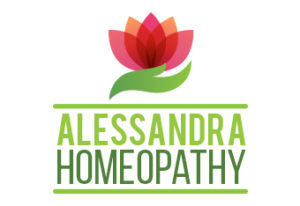Through the work of esteemed homeopath and filmmaker, Carol Boyce, the world is learning about the positive impact of homeopathic treatment on people worldwide.
Boyce has made a documentary film about the many homeopathic projects around the globe, including the training of young orphan women as homeopathic nurses in Kenya, ground-breaking research in Cuba, projects that focus on relieving the trauma of Haiti’s earthquake, to those working with the epidemics in Africa.
In this article we touch on some of the homeopathic initiatives around the globe as highlighted by Boyce’s project www.wholehealthnow.com/world/
Malawi
Homeopathy has been practiced in Malawi since 1976 and is recognized as an effective treatment for many diseases in the country. Homeopathy is seen as cheaper and safer than conventional medicines.
Boyce’s project includes a segment on the Eva de Maya Center in rural Malawi. The center was founded 10 years ago and offers treatment to the local community free of charge.
Susan Drury is a qualified homeopath from Vancouver who volunteers at the Eva de Maya Center.
Drury reports on her website that a wide variety of conditions are treated at the clinic, from respiratory viruses to tooth abscesses, mastitis, urinary or reproductive issues, asthma, malnutrition, heart disease, cancer, AIDS, malaria, septic wounds, and unusual skin conditions.
“Of particular amazement to me was how well people with a serious illness such as AIDS or acute malaria respond to homeopathic remedies. It was astounding to see the improvement, often within 24 hours after receiving a homeopathic remedy and they would be back to their normal life,” writes Drury.
Gambia
A team of homeopaths established a homeopathic school in 2008 and has maintained it since, offering training in homeopathy to school leavers and professionals.
Every year, two to four trained homeopaths from Switzerland come for up to 20 weeks to Batokunku Homeopathic Art School to teach and do other work for the project. The rest of the year, the homeopathy lessons are offered by trained Gambian homeopaths. Momodou Colley, a young Gambian doctor, also trains students in anatomy, physiology, pathology and traditional herbal medicine.
A Gambian homeopathic doctor explains in the documentary: “But the way homeopathy is working is very similar to traditional treatment in Africa, maybe this is the reason that Homeopathy is this successful and helps in a wonderful way here in Africa.”
The Batokunku Homeopathic Art School doubles as an outpatient clinic and a classroom where students are trained in anatomy, remedies, and homeopathy in an African way. The training lasts at least 36 months.
Kenya
Boyce also reports on the AIDS Remedy Fund Foundation (ARF), a non-profit organisation that conducts research into the treatment of HIV infection and AIDS, malaria and TB.
The aim is to leverage evidence-based public health interventions and eventually make inexpensive homeopathic remedies available to government, individuals and private business.
According to a new report, Kenya had the fastest-growing number of new HIV infections in sub-Saharan Africa in the last decade.
The foundation has already done a successful pilot study of the effectiveness of the drug Iquilai to combat the effects of HIV/Aids within an HIV-infected population in Kenya.
Iquilai has been developed by, Jan Scholten of the Netherlands, one of the world’s foremost researchers and writers in the field of homeopathy.
The pilot study has found that more than 90% of the patients showed improvement in their health subsequent to treatment with Iquilai.
Homeopaths Without Borders in Haiti
The Haitians learned about the many benefits of homeopathy after the devastating earthquake that hit the island in 2010. Homeopaths Without Borders (HWB) arrived soon after the tragedy and has maintained a presence in the Caribbean island country ever since.
Since 2010 HWB has run a program in homeopathy at the University of Notre Dame in Port-au-Prince leading to certification in conjunction with the American Medical College of Homeopathy in Phoenix for nursing students.
HWB is focusing on the need to create health care independence among the Haitian people. The goal is to train members of the medical community to become practitioners of homeopathy.
In 2013 the Association d’Homeopathes Communautaires officially registered the first homeopathic organization in Haiti with the Ministère des Affaires Social et du Travail. This group was the first graduating class (13) of community homeopaths from the Fundamentals Homeopathy Program offered by HWB.
HWB currently offers a Fundamentals Course for Health Professionals to help strengthen Haiti’s capacity to meet the healthcare needs of its people. Thirteen doctors, nurses and a social worker are participating in the Fundamentals Course in Port au Prince, Haiti. This course is being held in collaboration with the Haitian Medical Association where classes are being held.
The work of HWB has also brought about a reduction in the maternal and infant mortality rate in Haiti. The HWB offers a program called Homeopathy for Birth Attendants and the first class graduated in June 2014.


